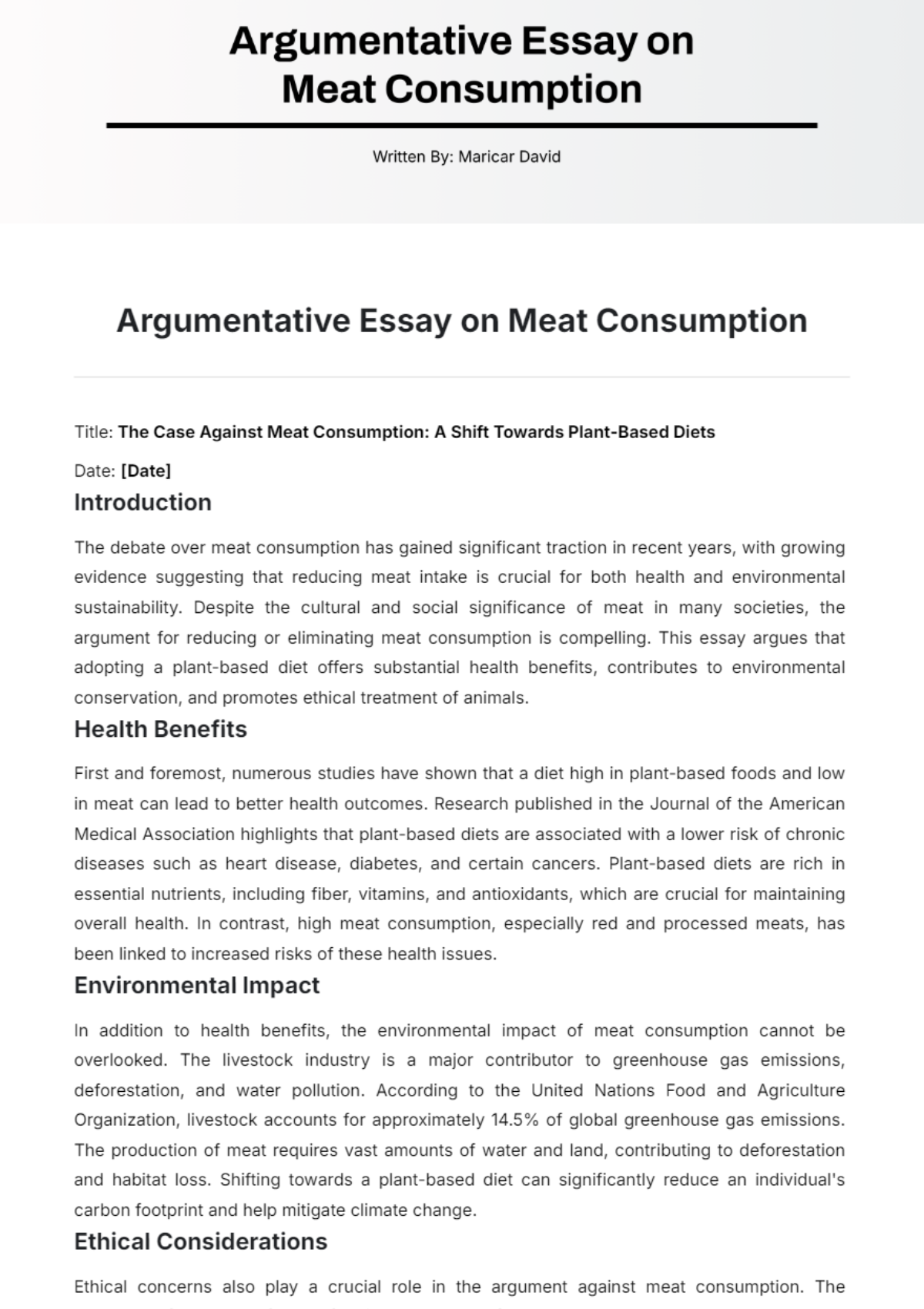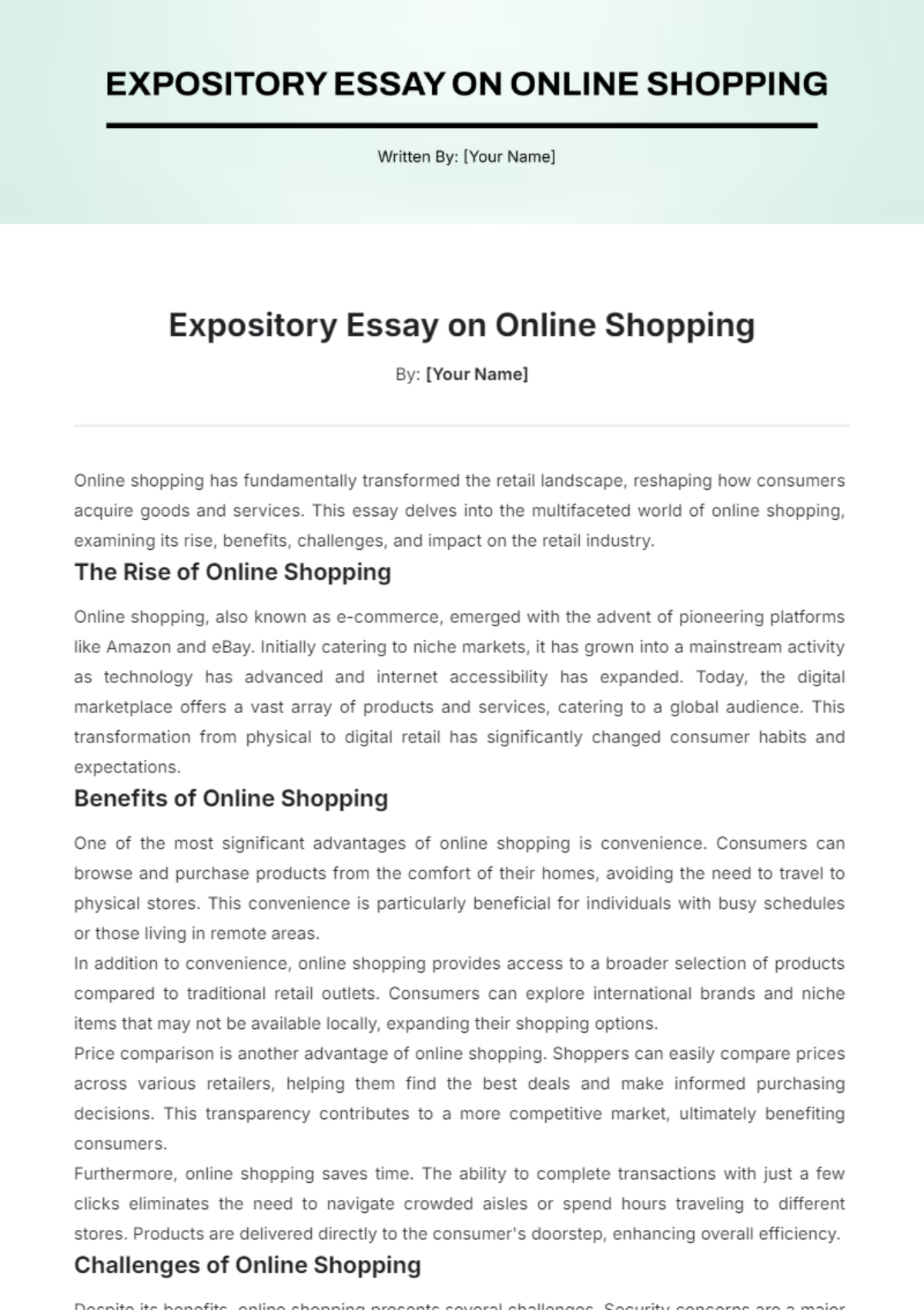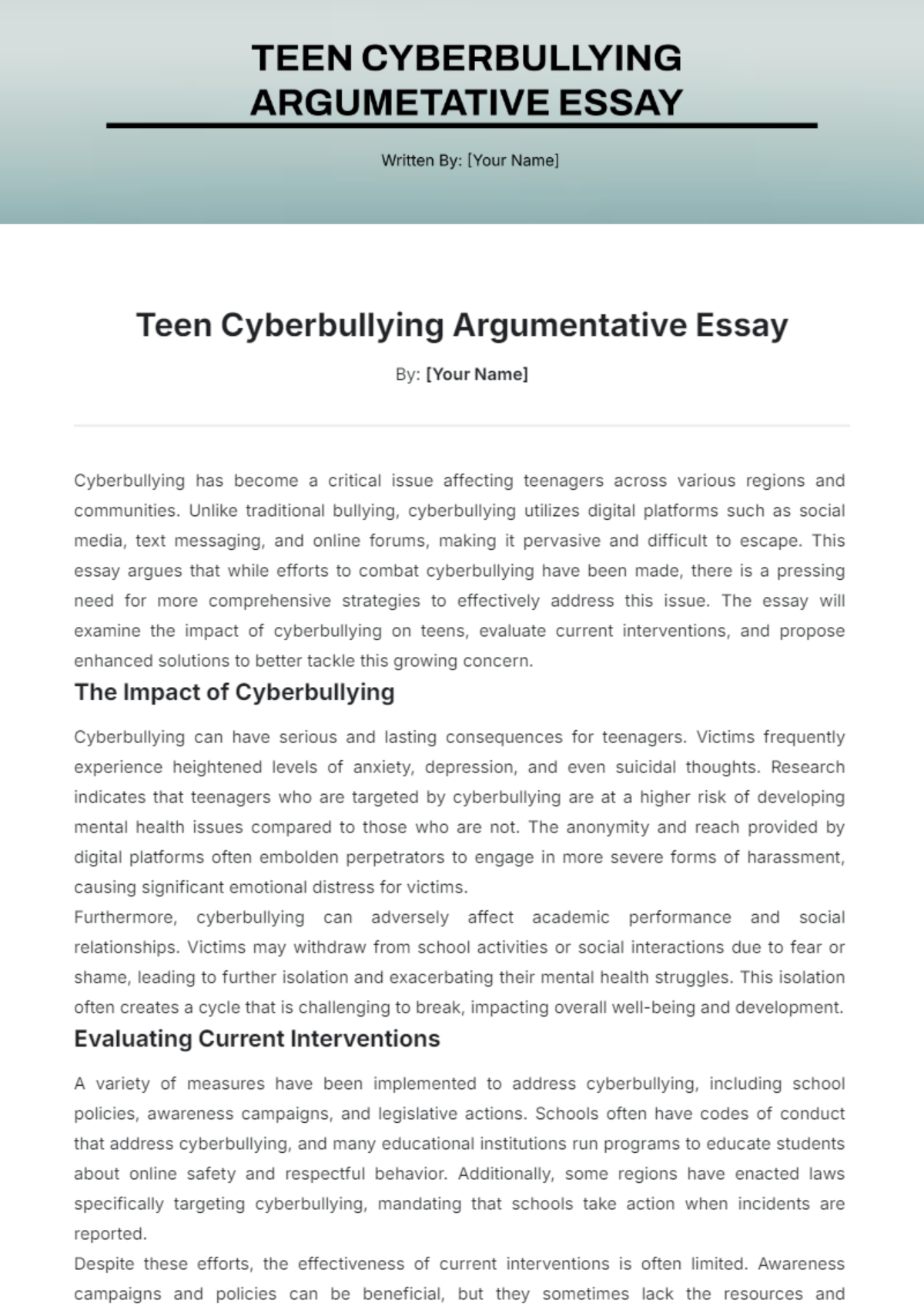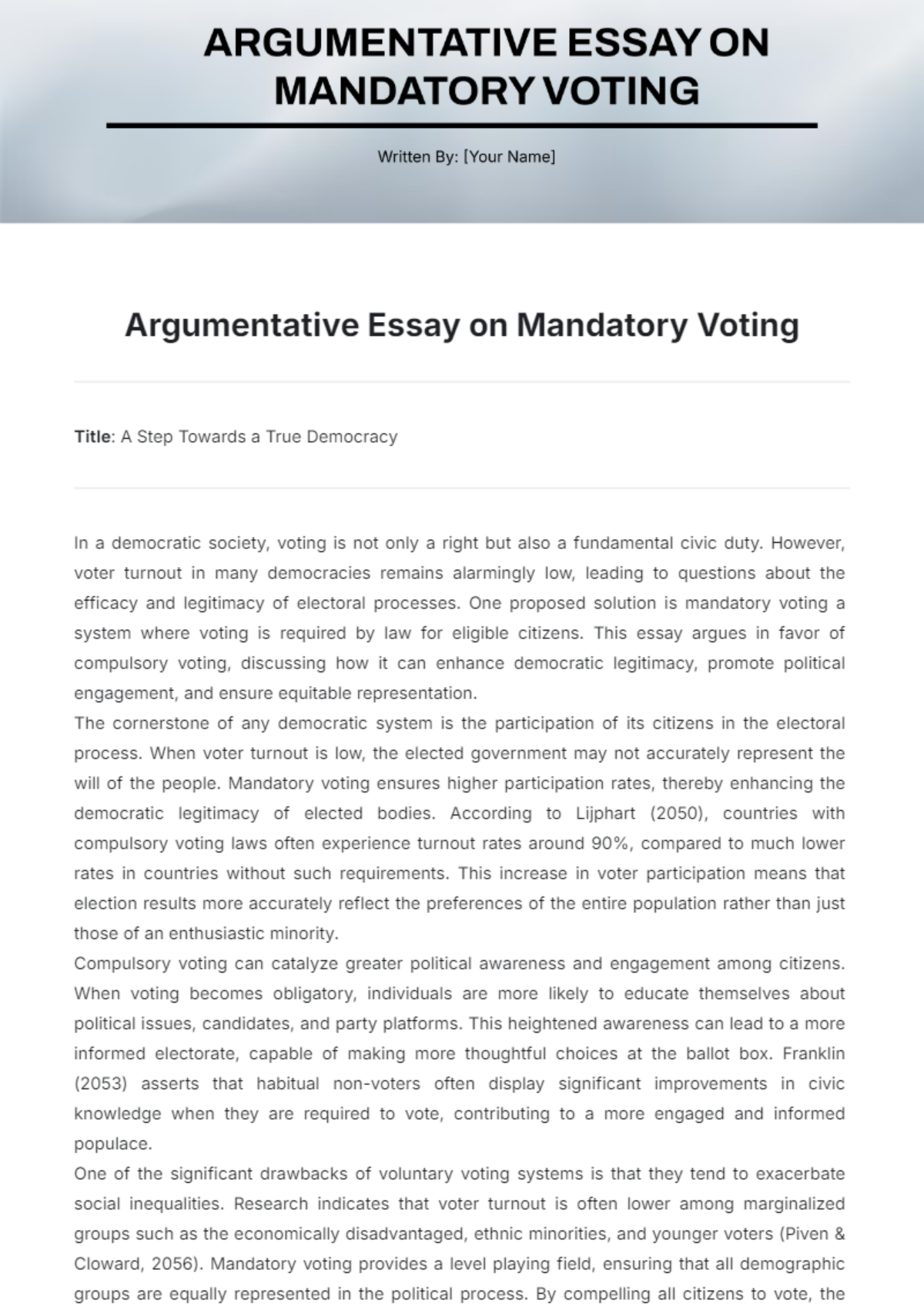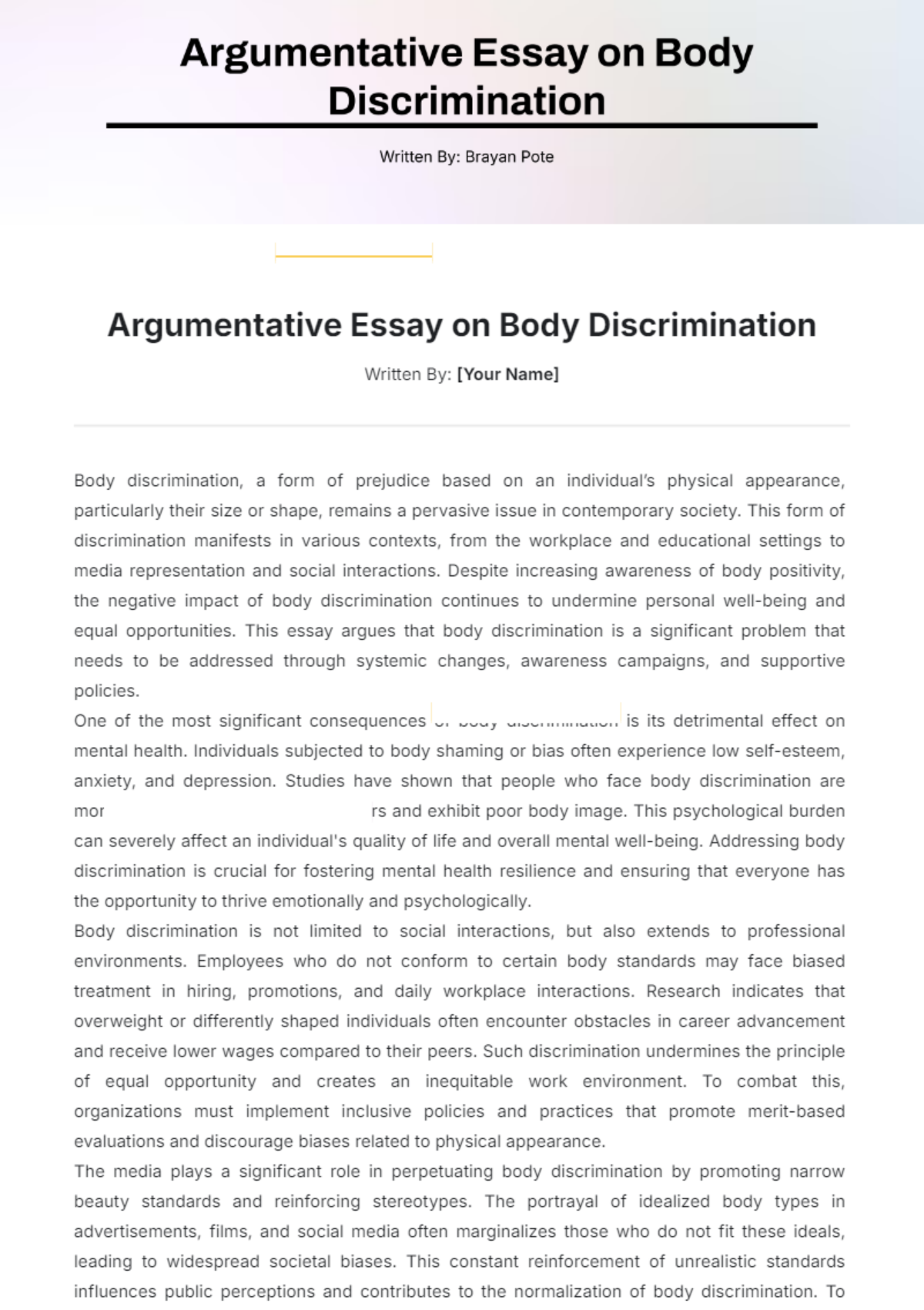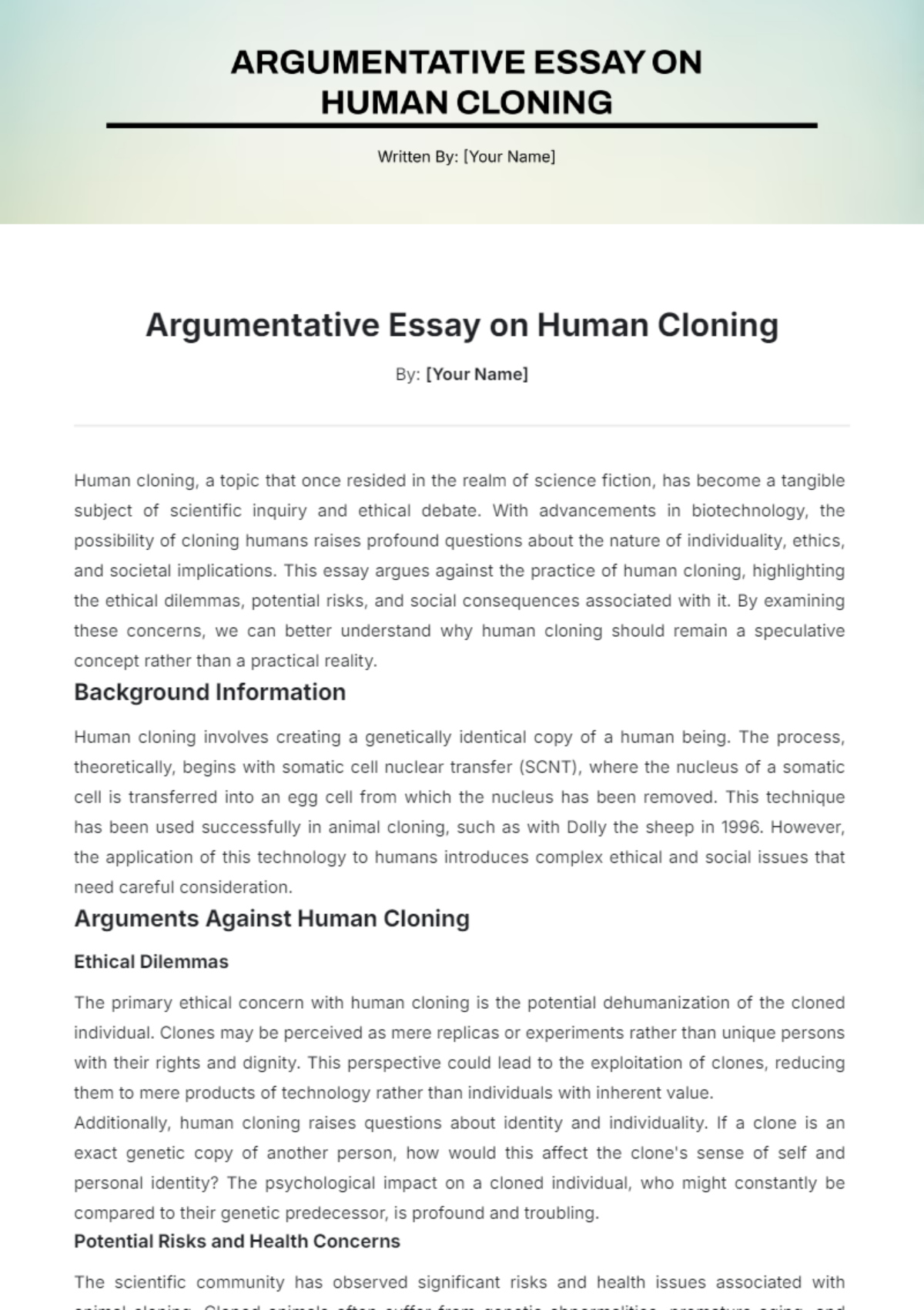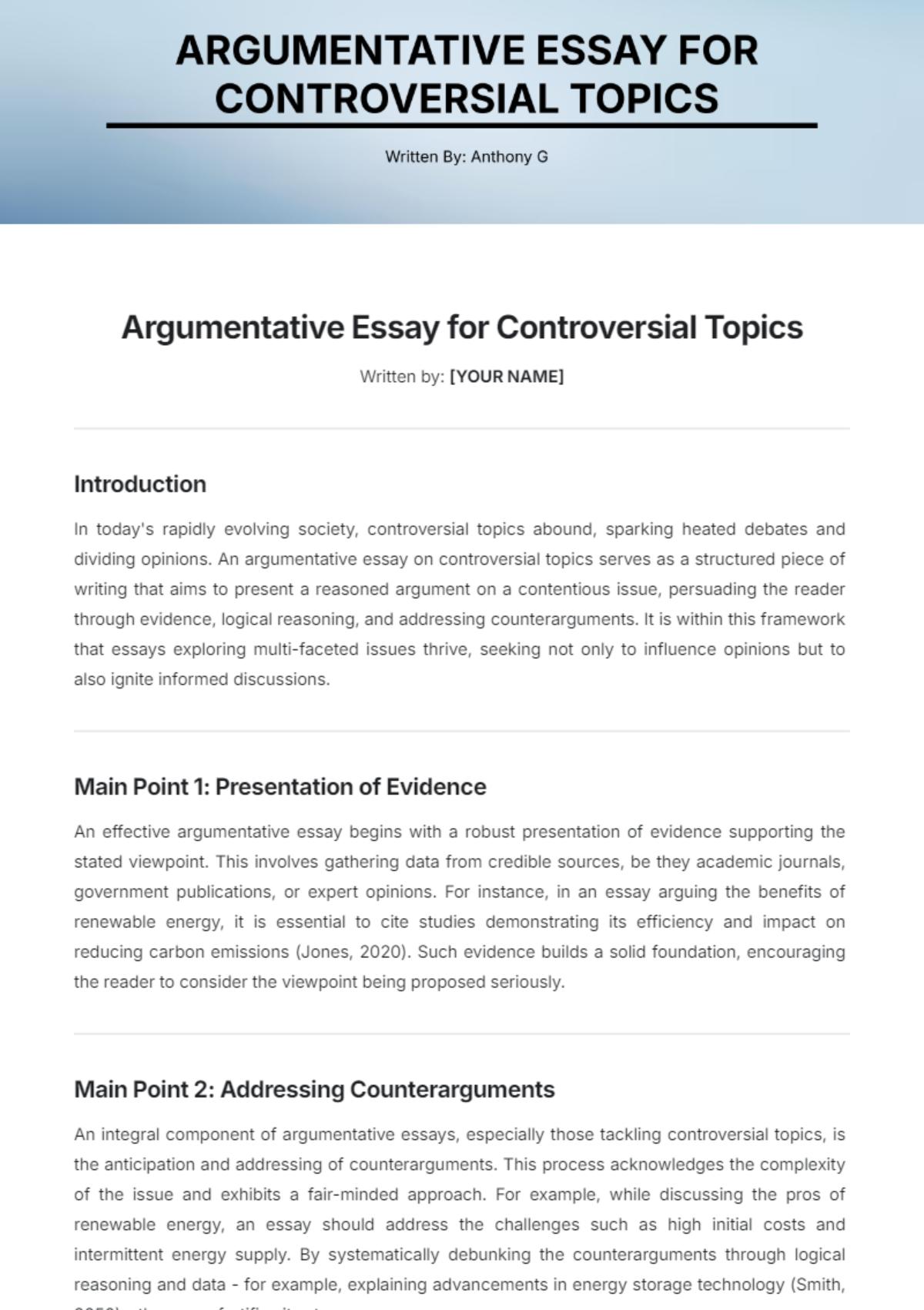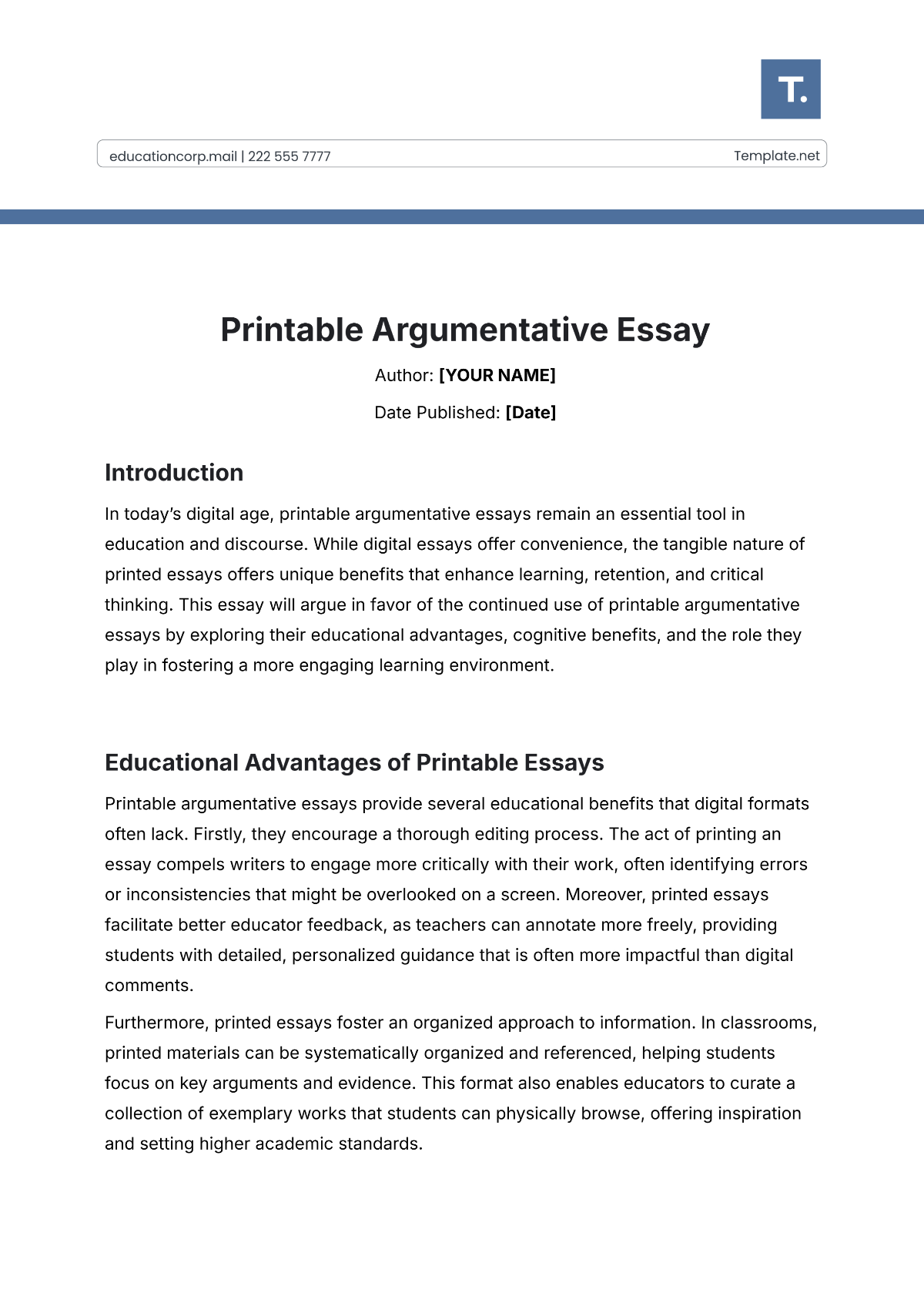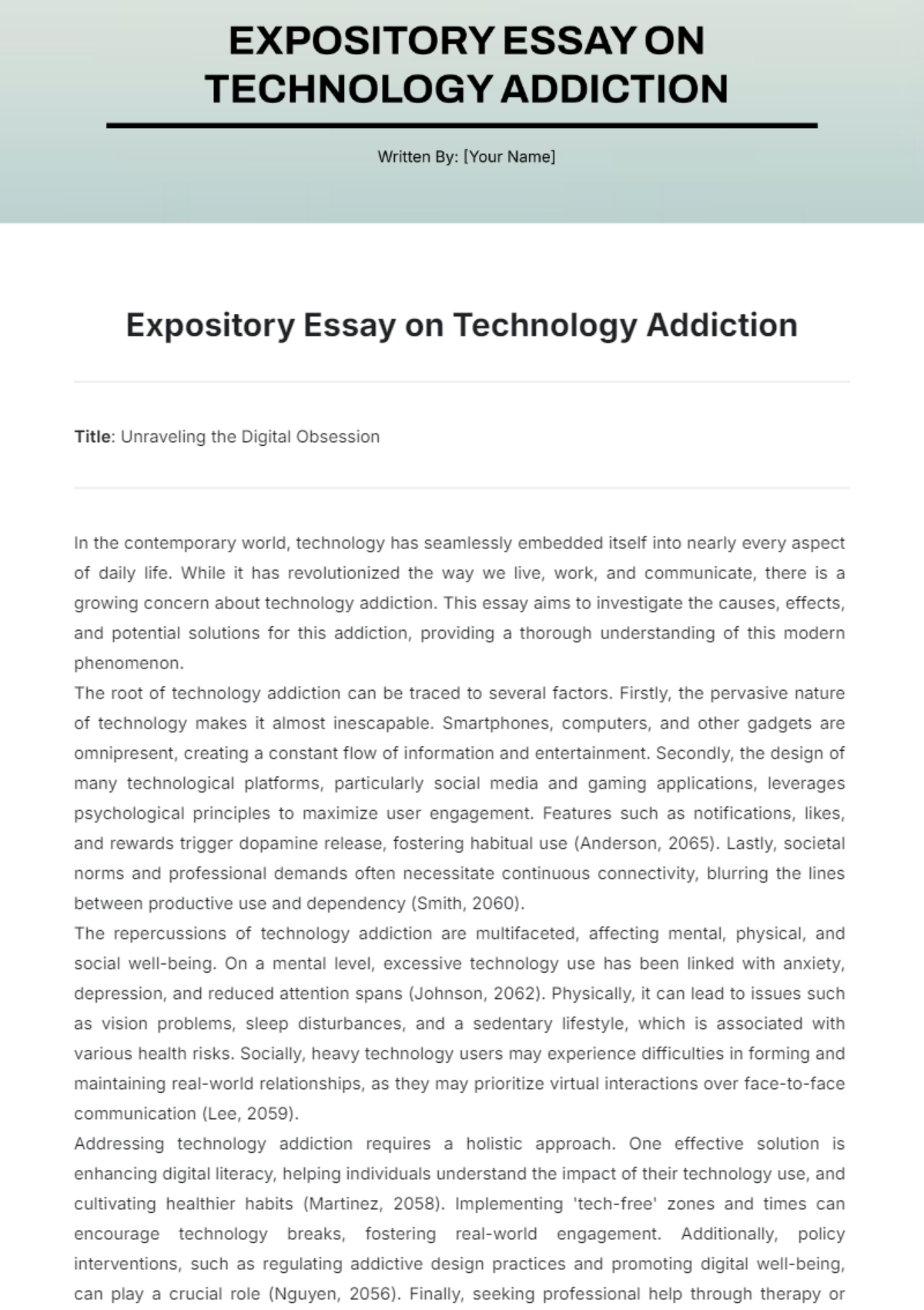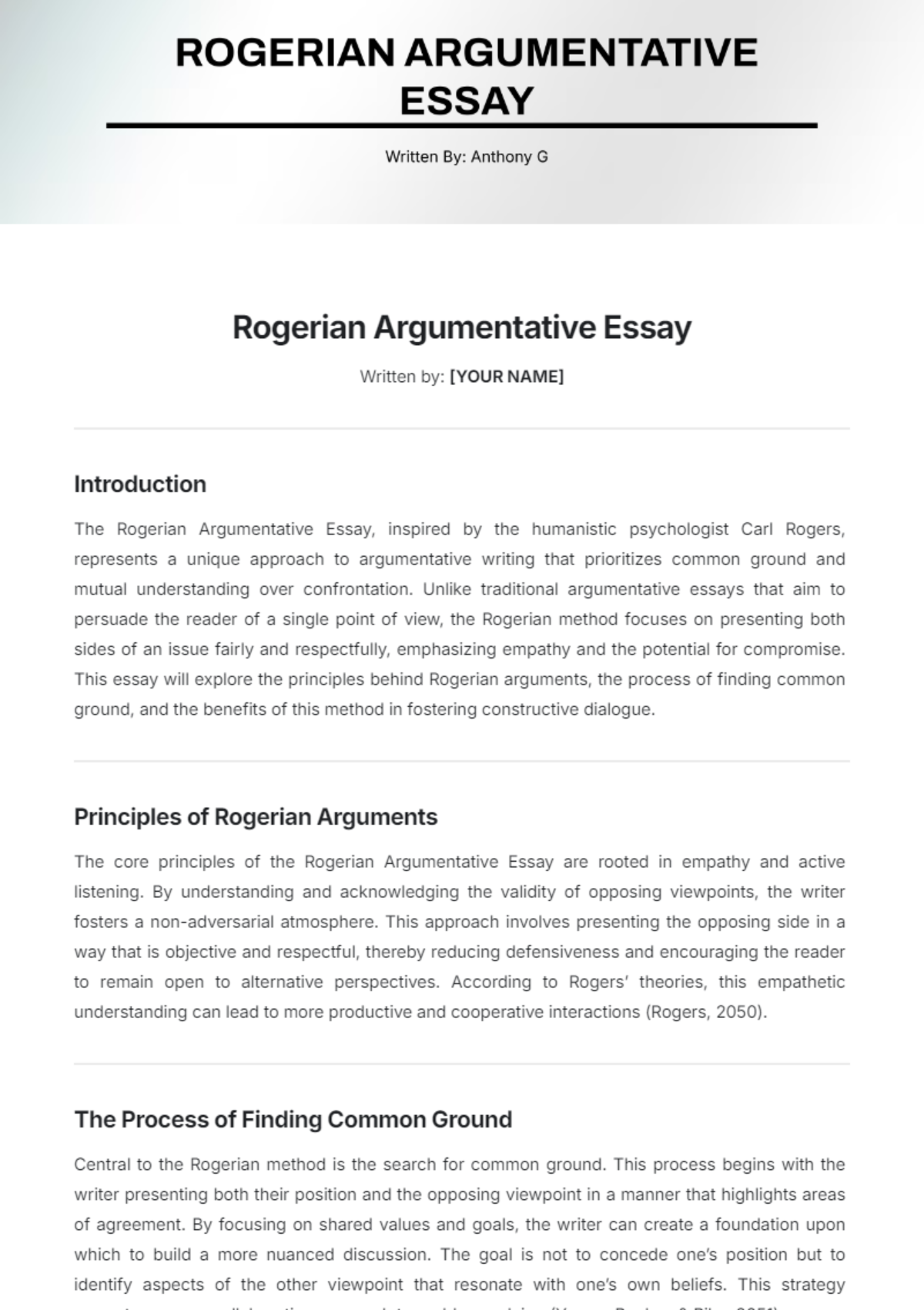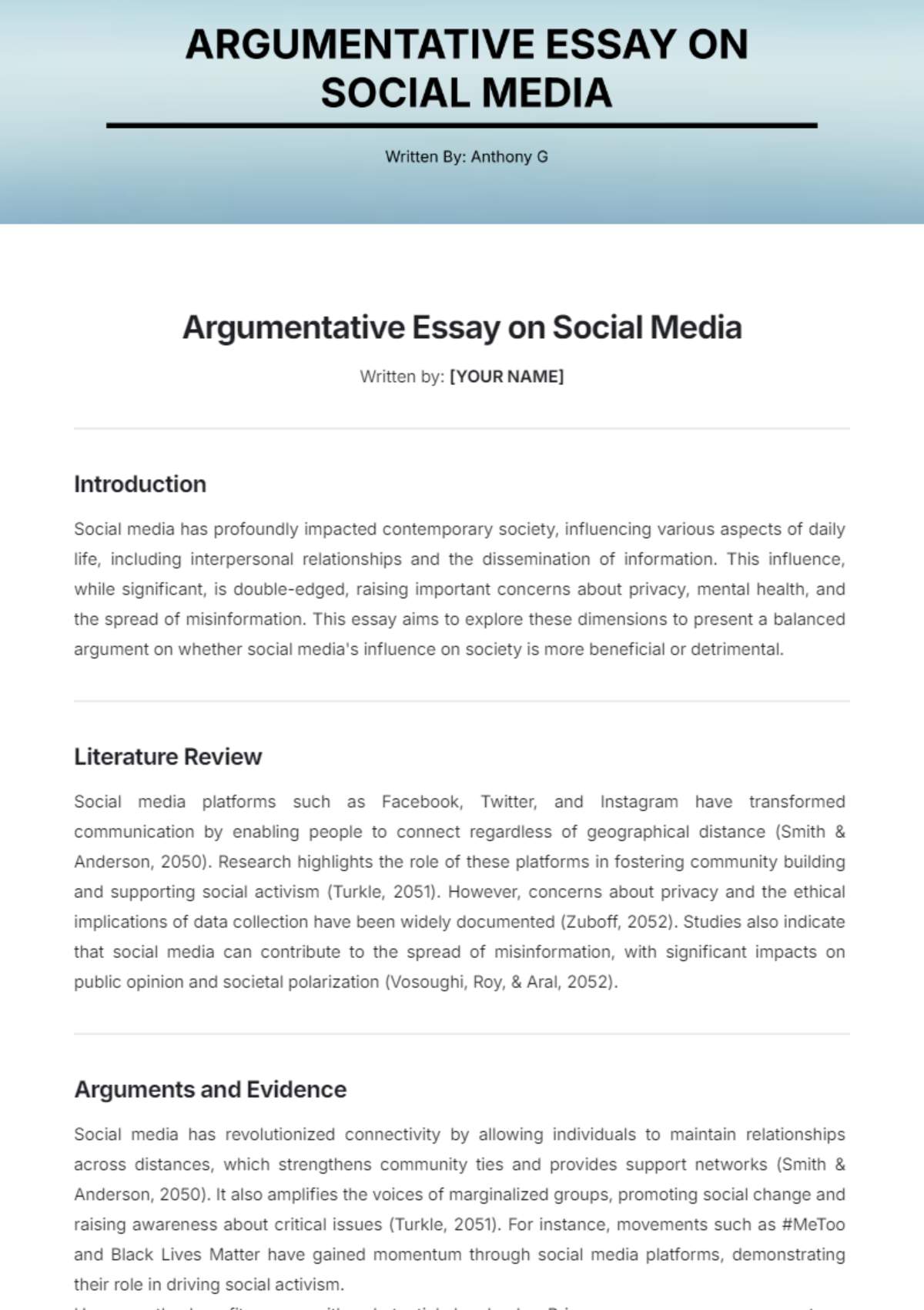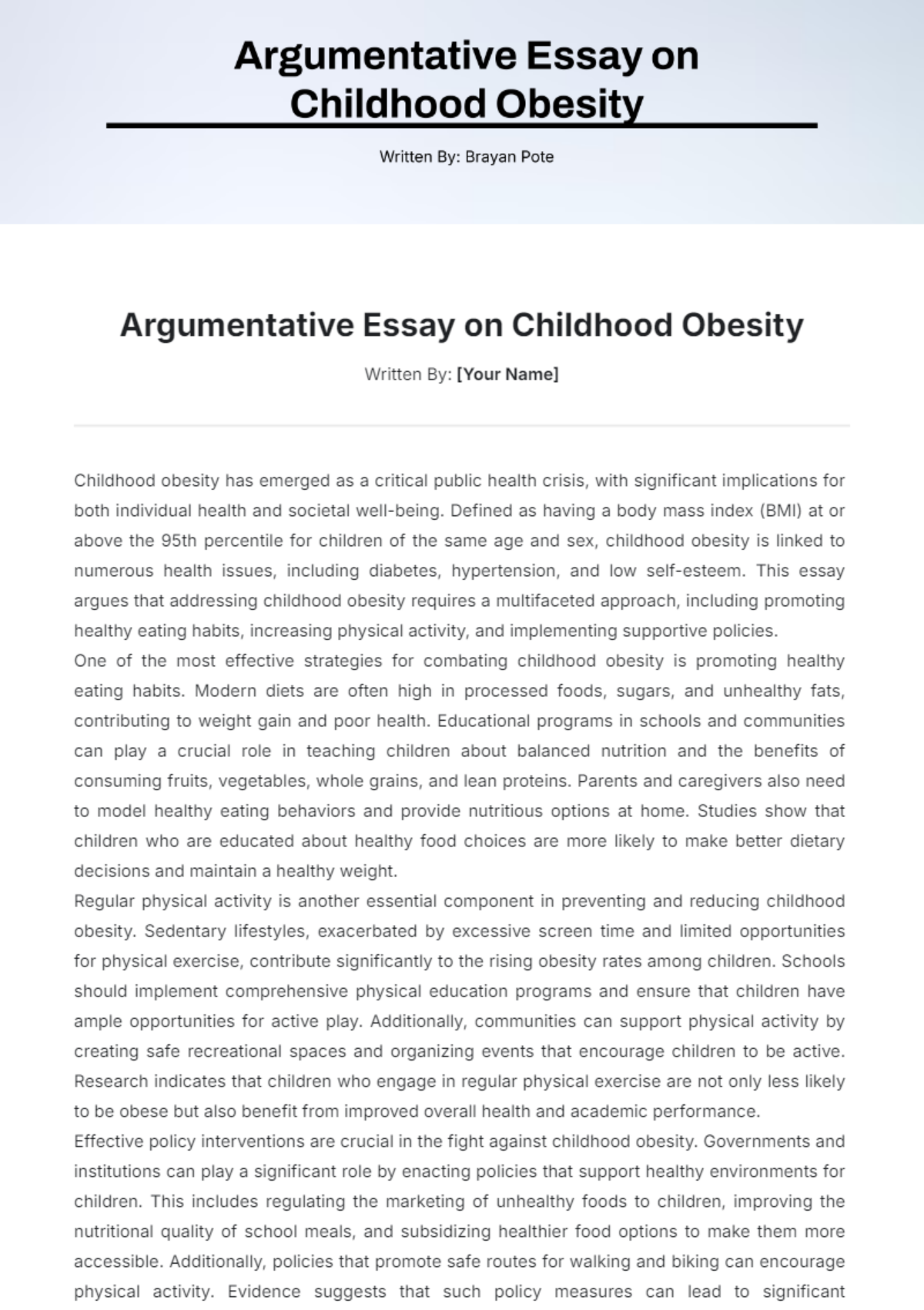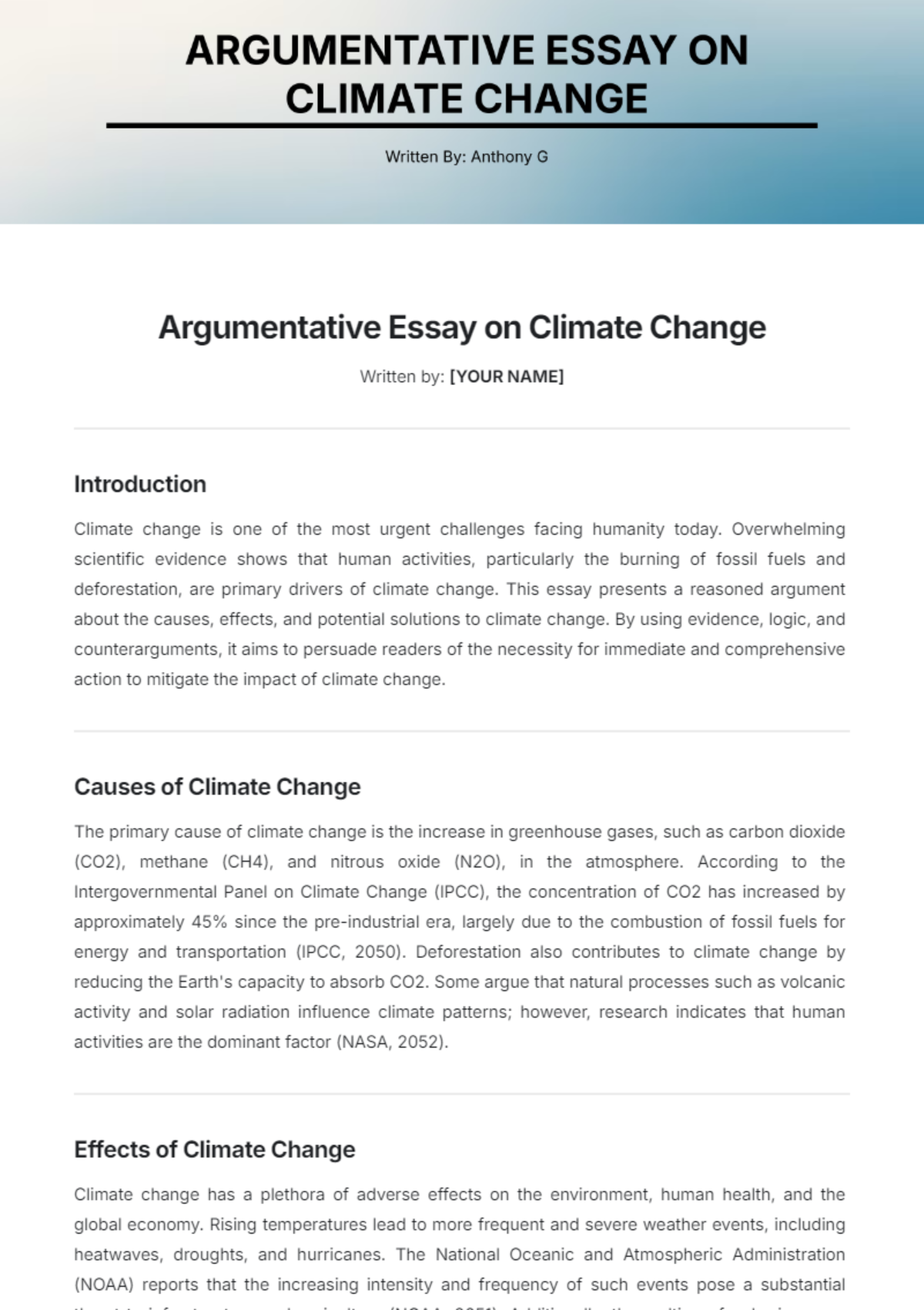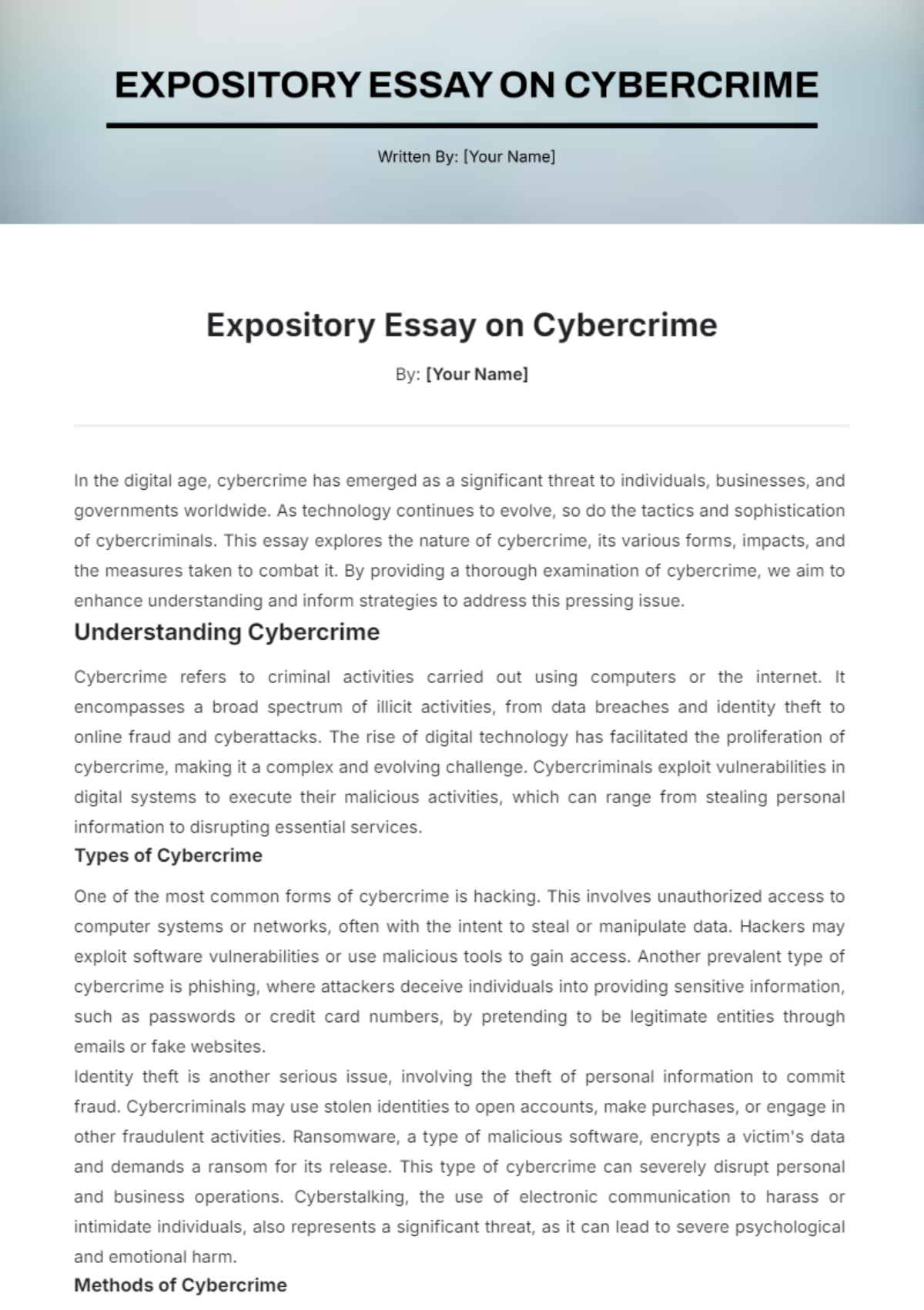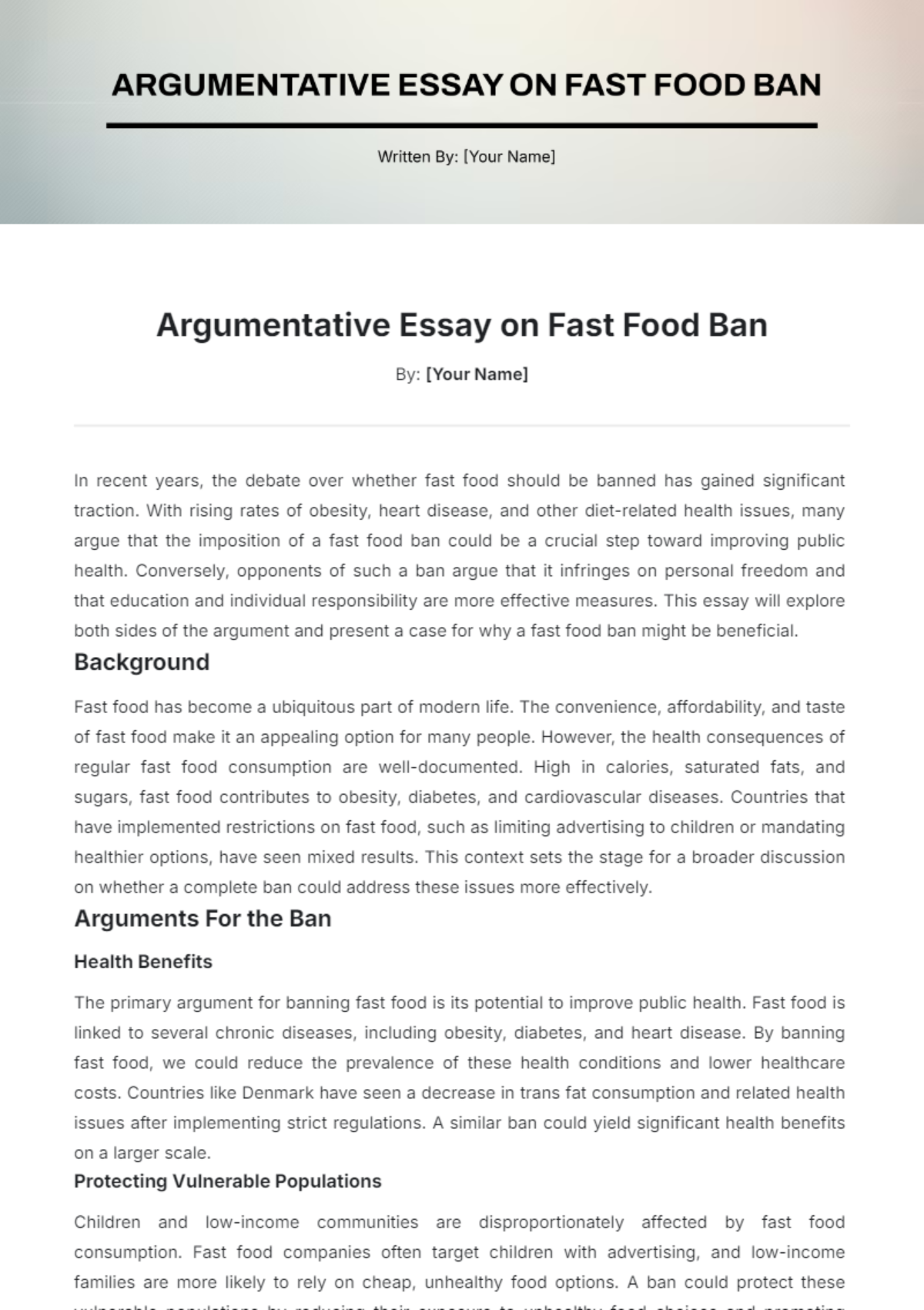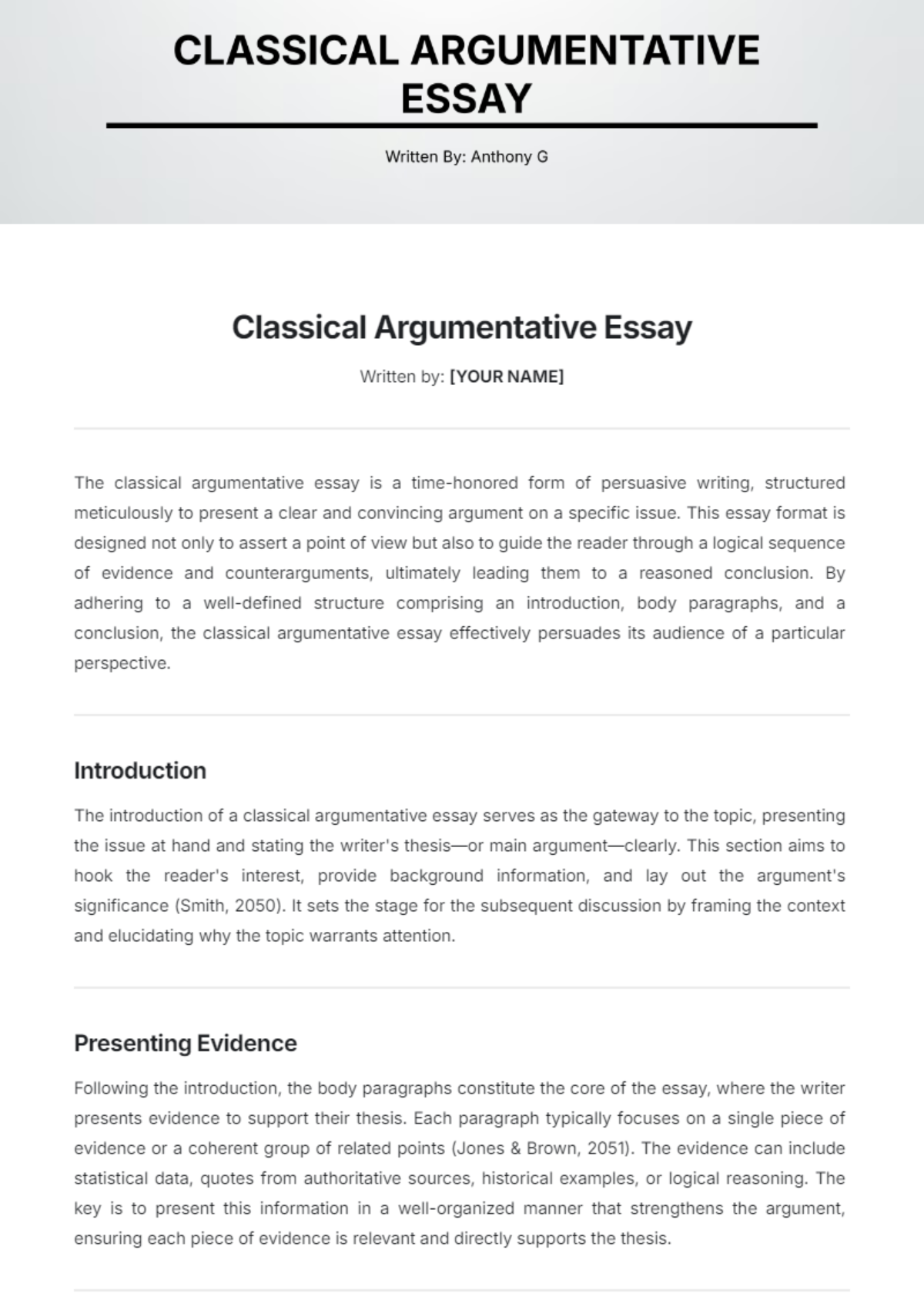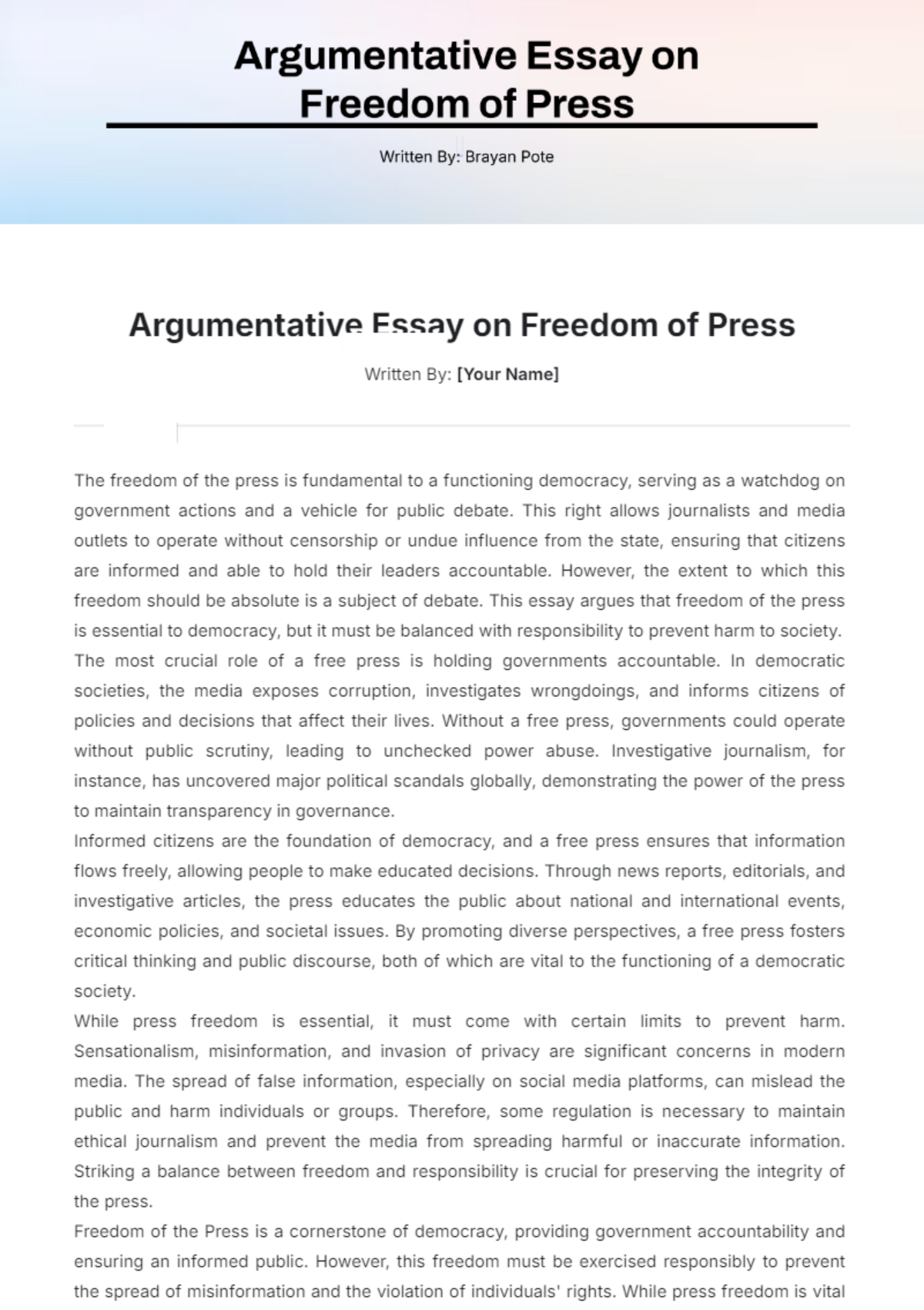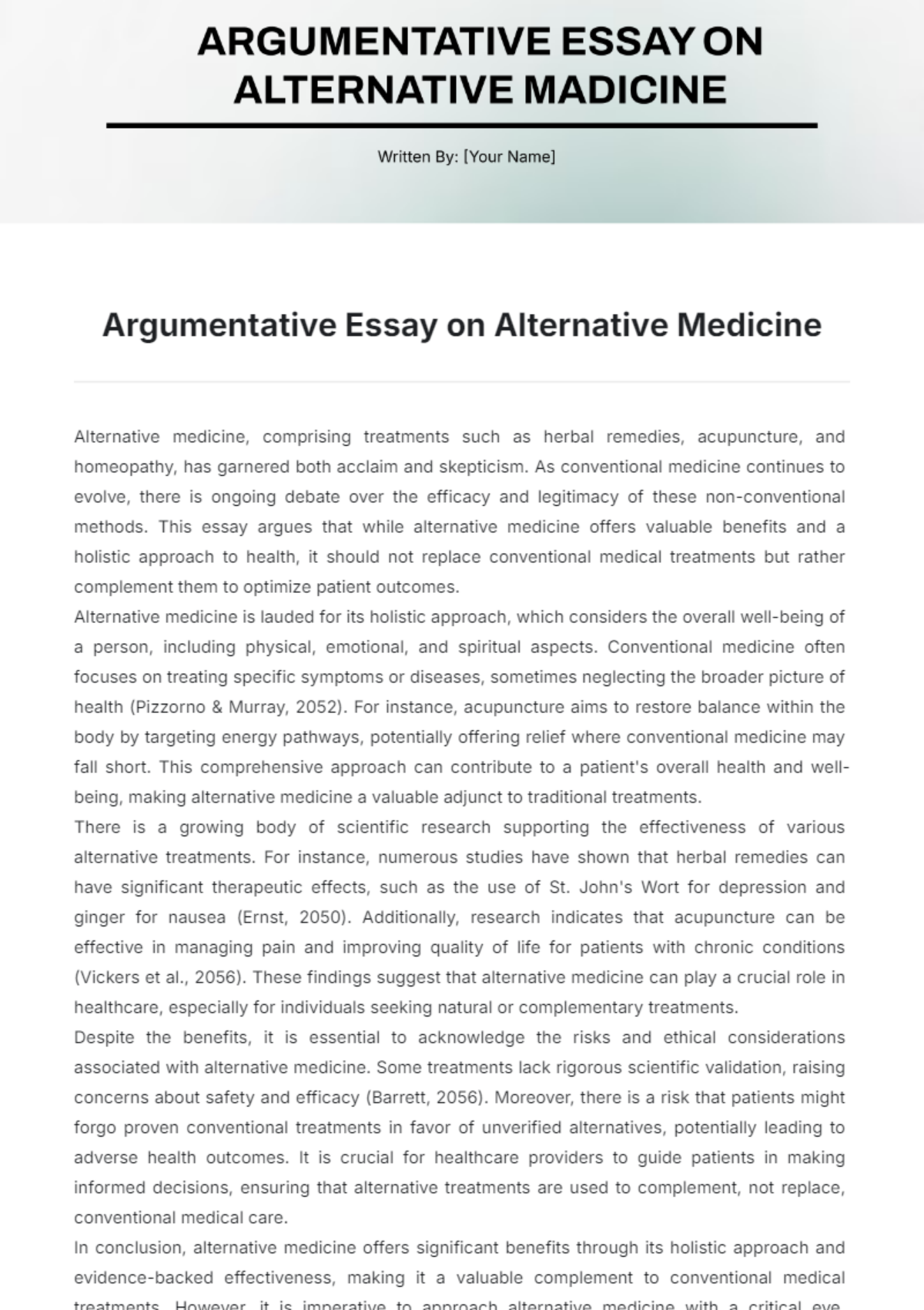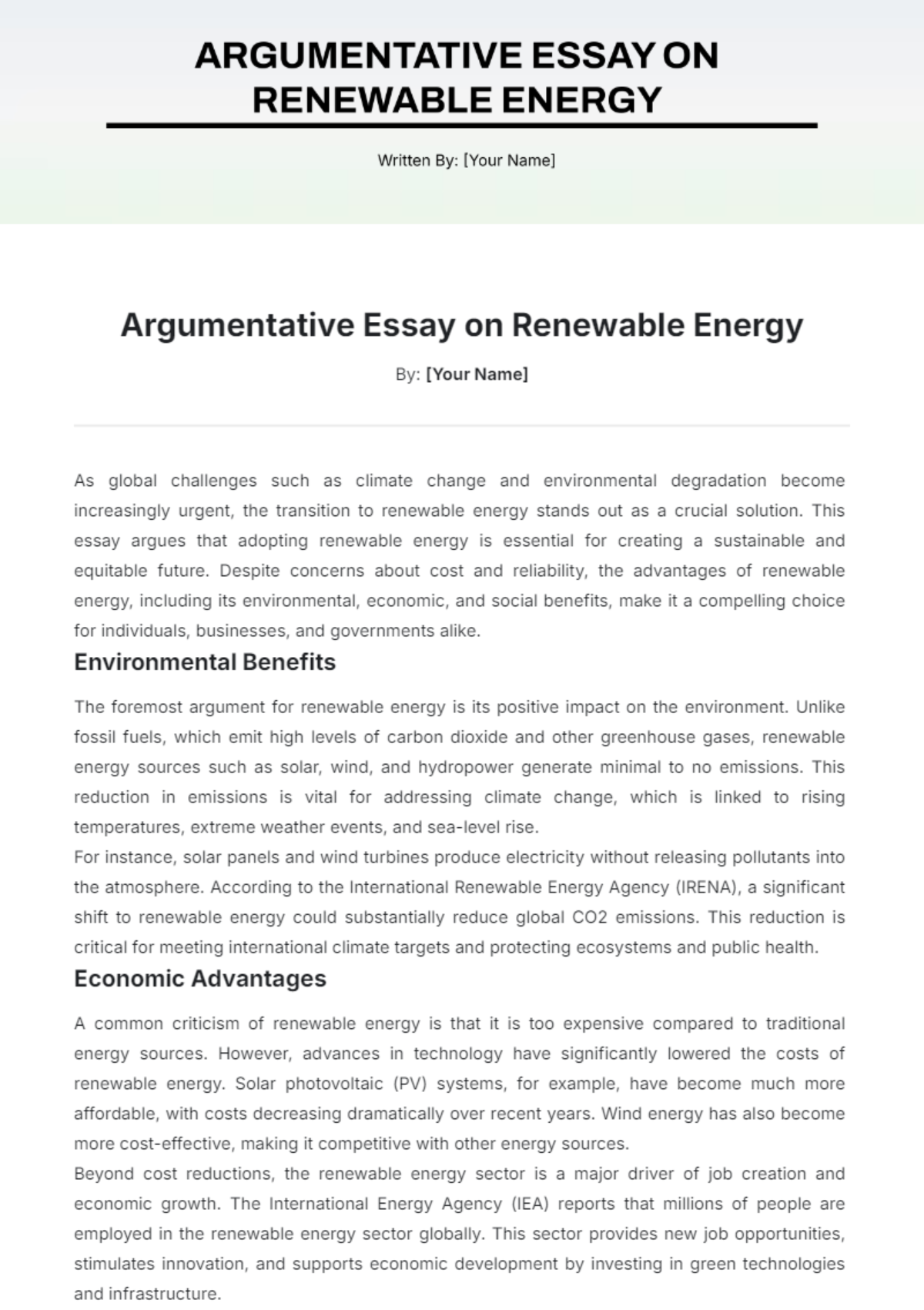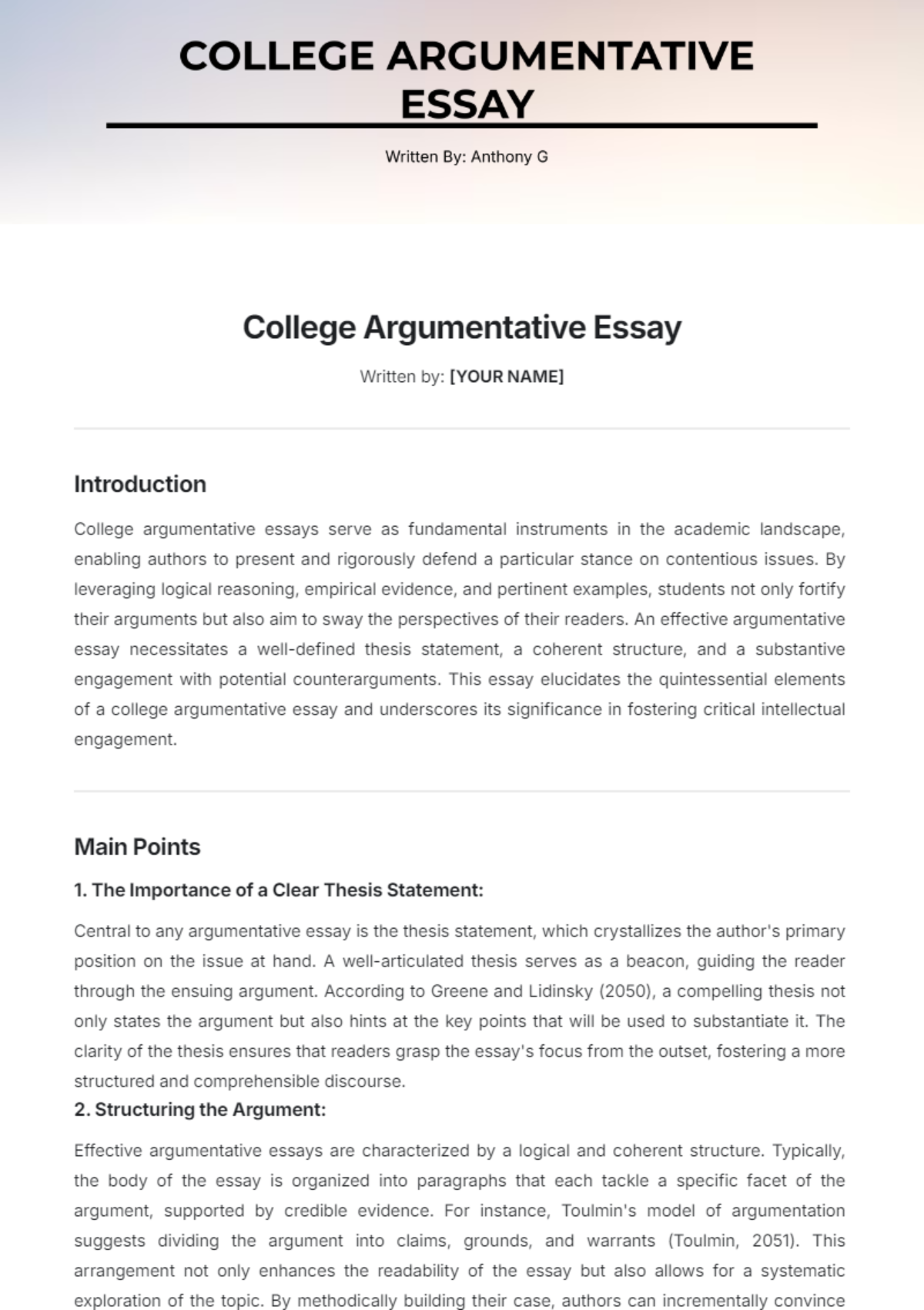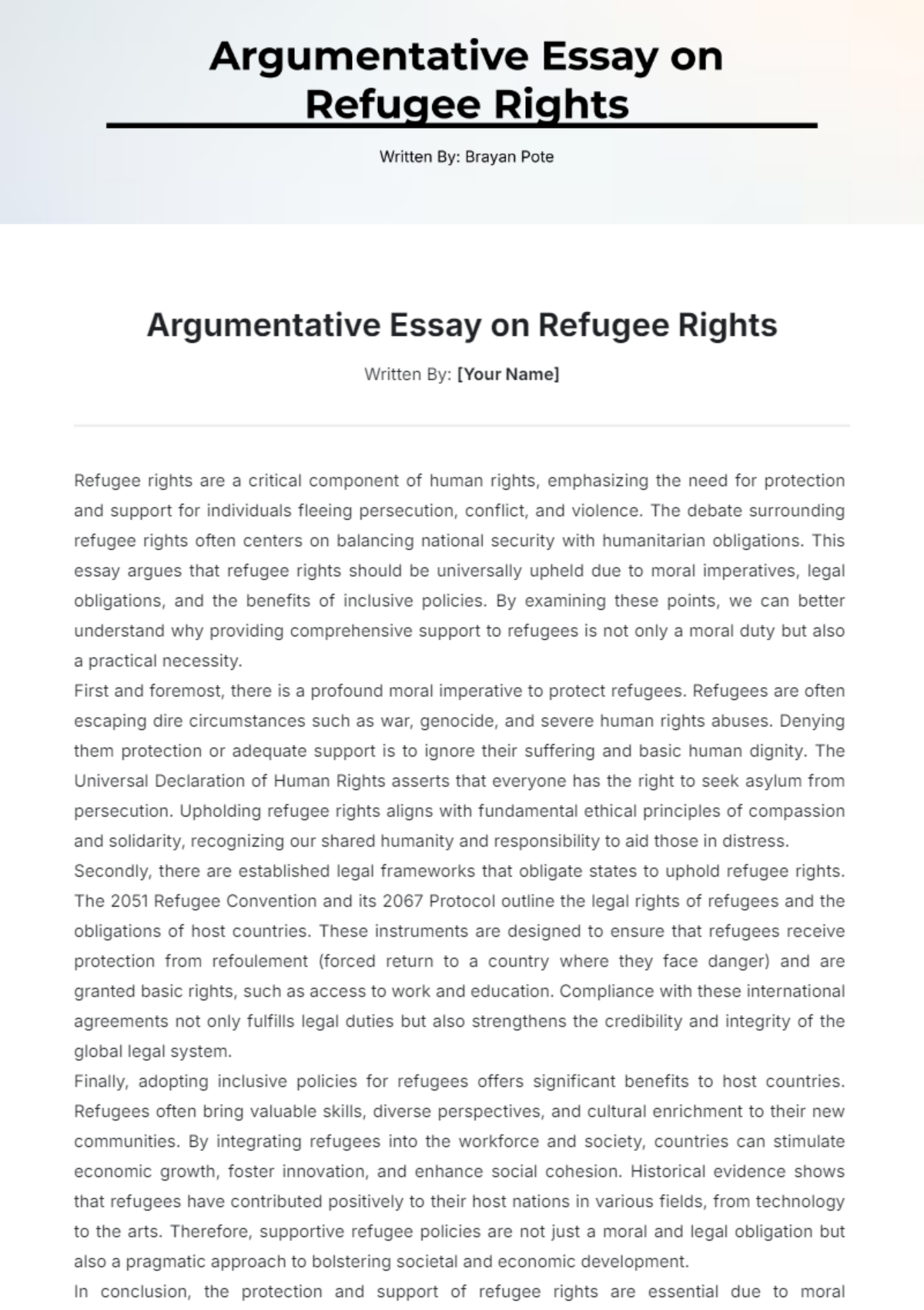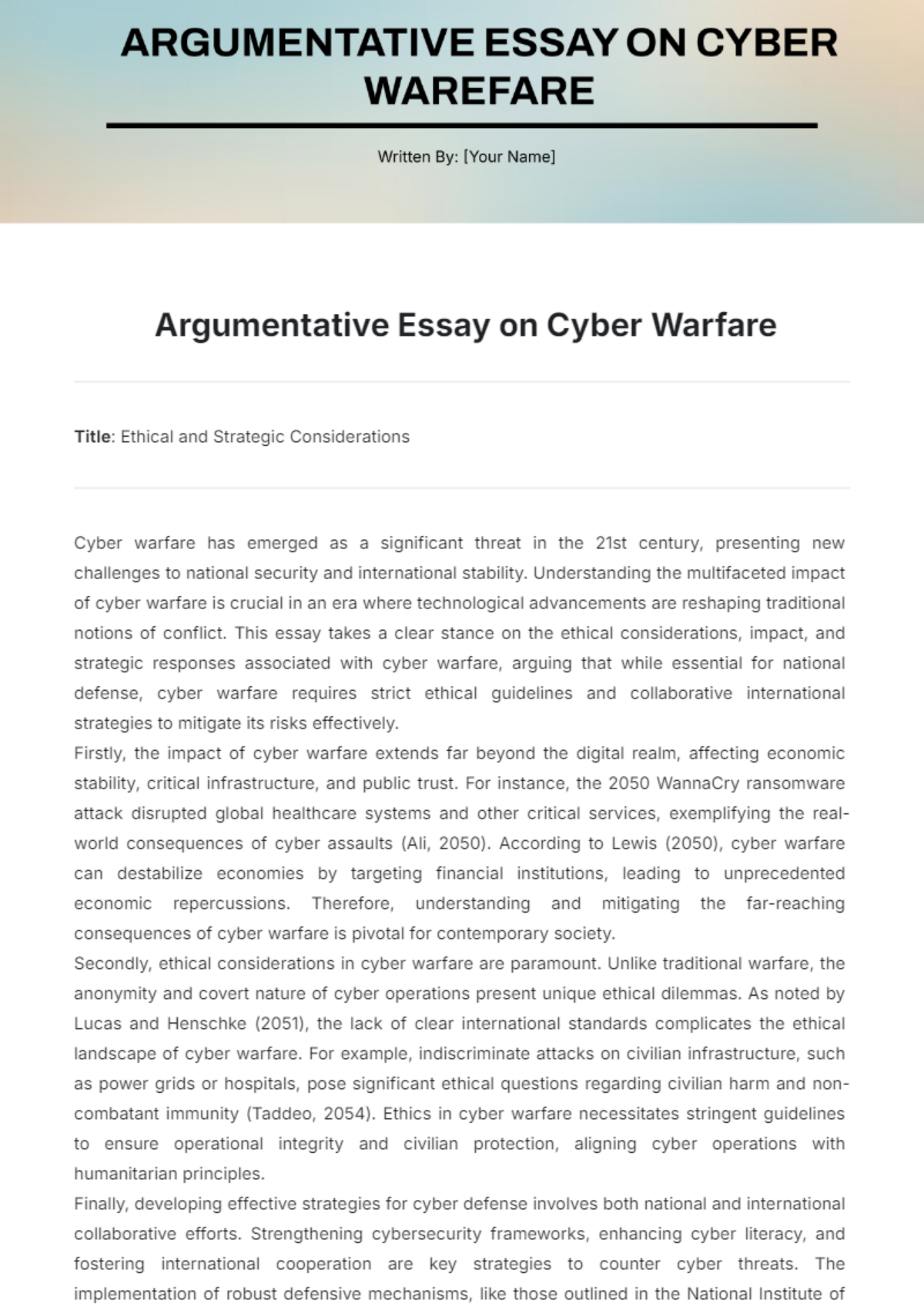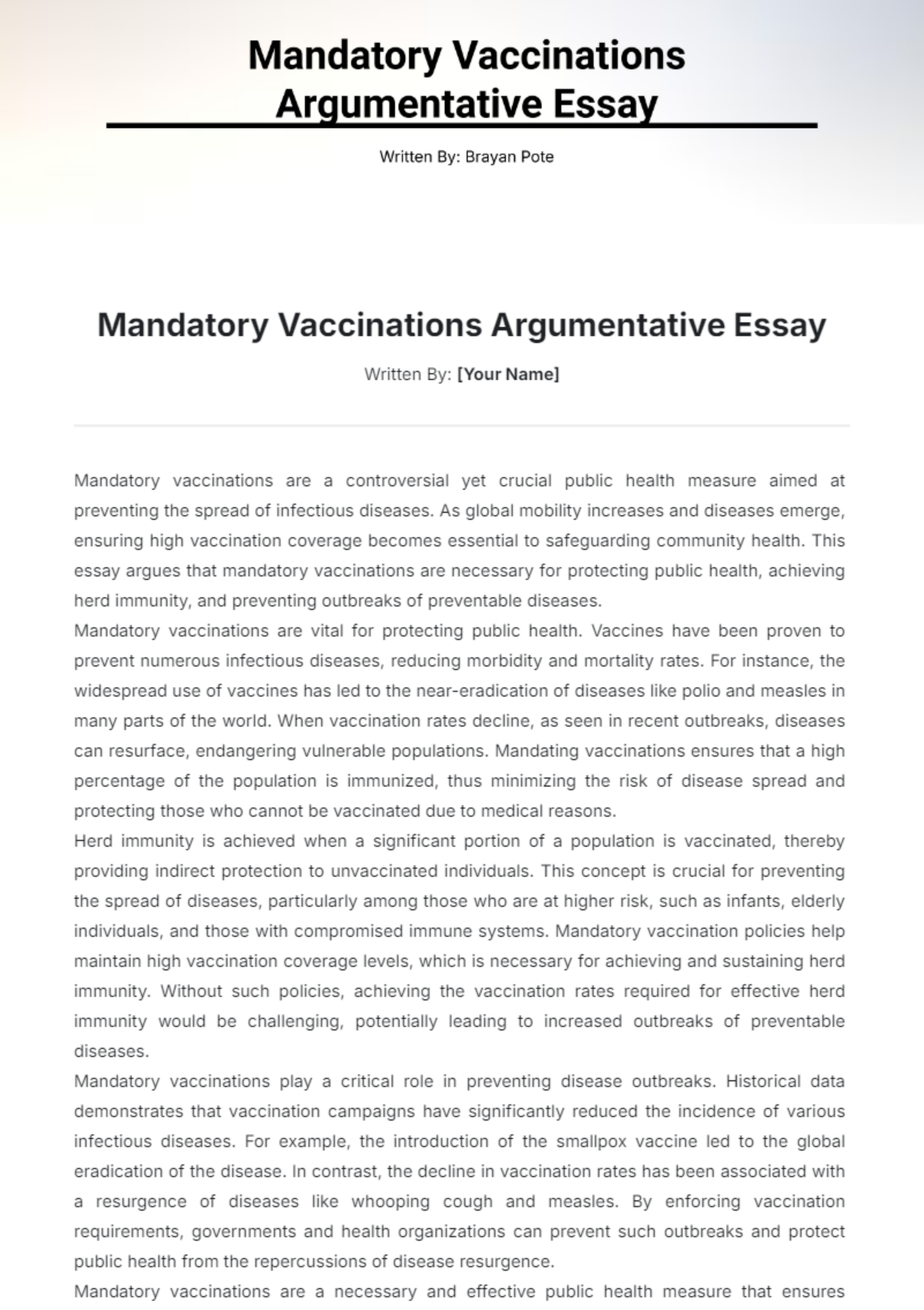Argumentative Essay on Meat Consumption
Title: The Case Against Meat Consumption: A Shift Towards Plant-Based Diets
Date: [Date]
Introduction
The debate over meat consumption has gained significant traction in recent years, with growing evidence suggesting that reducing meat intake is crucial for both health and environmental sustainability. Despite the cultural and social significance of meat in many societies, the argument for reducing or eliminating meat consumption is compelling. This essay argues that adopting a plant-based diet offers substantial health benefits, contributes to environmental conservation, and promotes ethical treatment of animals.
Health Benefits
First and foremost, numerous studies have shown that a diet high in plant-based foods and low in meat can lead to better health outcomes. Research published in the Journal of the American Medical Association highlights that plant-based diets are associated with a lower risk of chronic diseases such as heart disease, diabetes, and certain cancers. Plant-based diets are rich in essential nutrients, including fiber, vitamins, and antioxidants, which are crucial for maintaining overall health. In contrast, high meat consumption, especially red and processed meats, has been linked to increased risks of these health issues.
Environmental Impact
In addition to health benefits, the environmental impact of meat consumption cannot be overlooked. The livestock industry is a major contributor to greenhouse gas emissions, deforestation, and water pollution. According to the United Nations Food and Agriculture Organization, livestock accounts for approximately 14.5% of global greenhouse gas emissions. The production of meat requires vast amounts of water and land, contributing to deforestation and habitat loss. Shifting towards a plant-based diet can significantly reduce an individual's carbon footprint and help mitigate climate change.
Ethical Considerations
Ethical concerns also play a crucial role in the argument against meat consumption. The treatment of animals in factory farming conditions often involves inhumane practices, including confinement in cramped spaces and harsh handling. Many people are uncomfortable with the idea of animals being raised and slaughtered under such conditions. Adopting a plant-based diet aligns with the growing movement towards animal rights and welfare. By choosing plant-based options, individuals can make a positive impact on animal welfare and support more humane food production practices.
Counterarguments
Proponents of meat consumption often argue that meat is a necessary source of protein and that it is deeply ingrained in cultural traditions. However, plant-based sources of protein, such as legumes, nuts, and seeds, can provide all the necessary nutrients without the negative health and environmental impacts associated with meat. Moreover, cultural traditions can evolve, and many cultures have successfully integrated plant-based options into their dietary practices.
Conclusion
In conclusion, the case against meat consumption is supported by substantial evidence in terms of health benefits, environmental sustainability, and ethical considerations. As individuals become more aware of the impact of their dietary choices, the shift towards plant-based diets is becoming increasingly viable and beneficial. Reducing meat consumption is not only a personal choice but also a significant step towards a healthier, more sustainable, and more compassionate world.
Essay Templates @ Template.net
